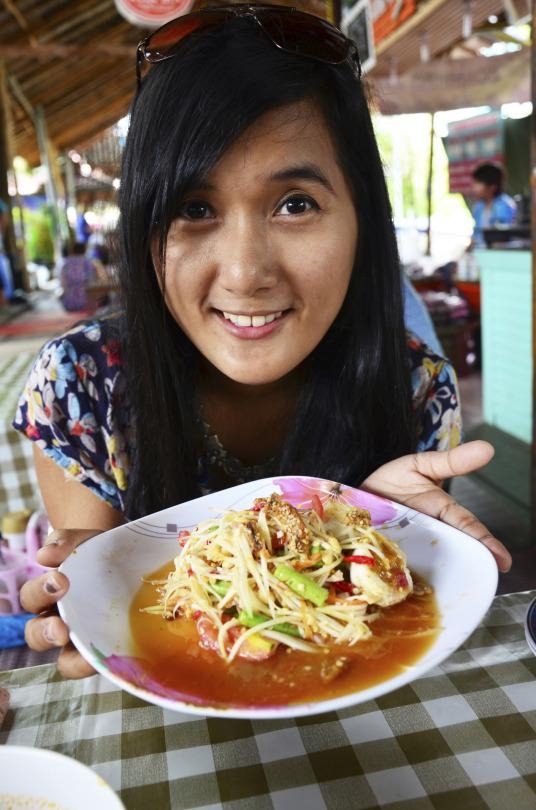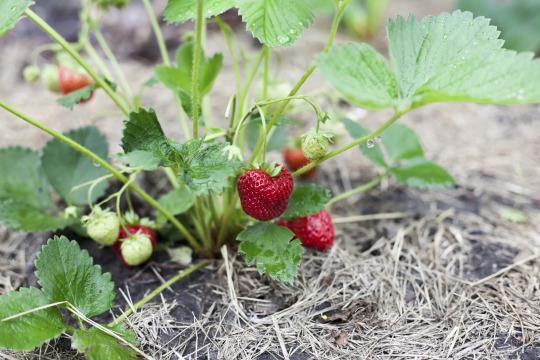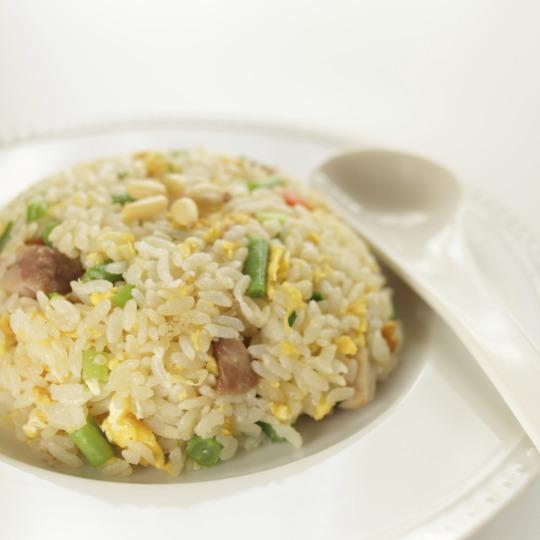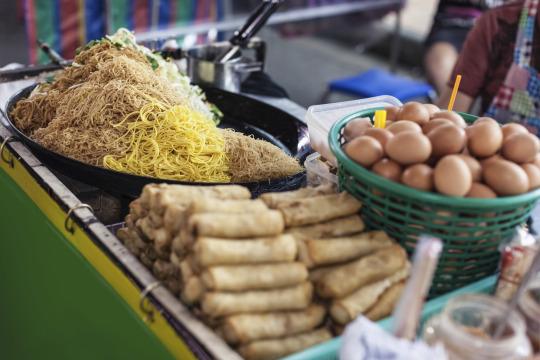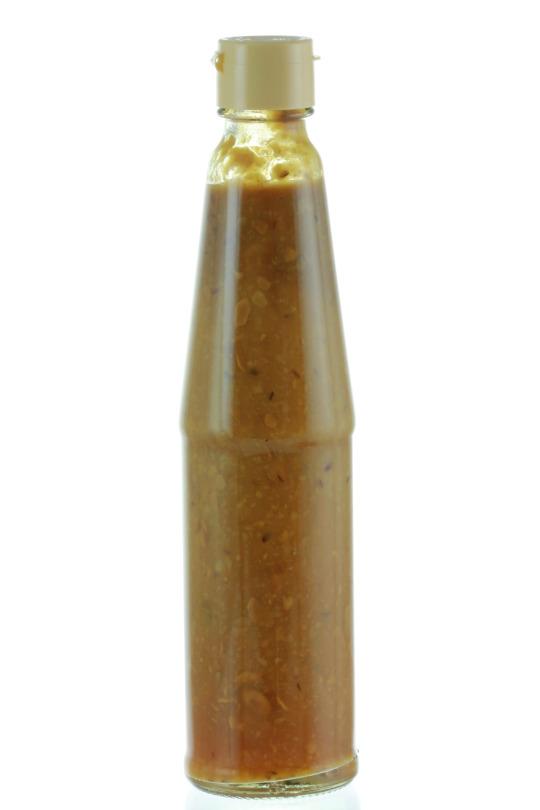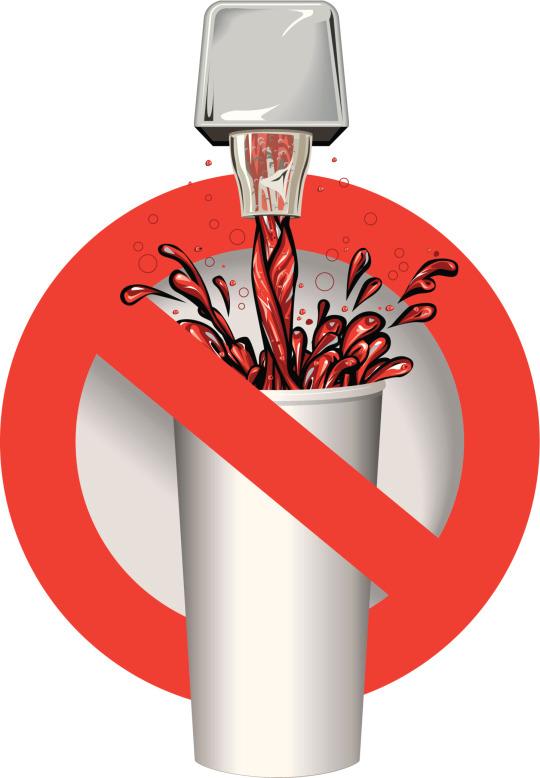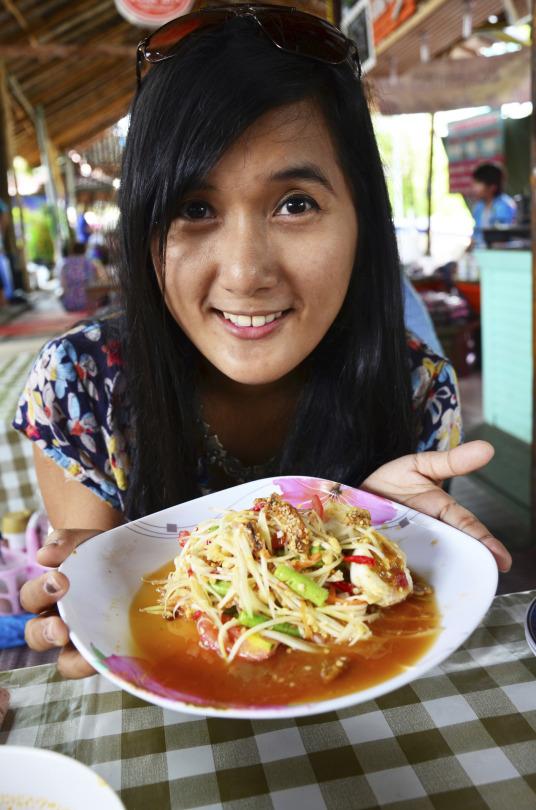Beware Of Traveler's Belly: What Not To Eat Around The World If You Want To Stay Healthy
We've all heard the saying "Cook it, boil it, peel it, or forget it." When traveling overseas, we know that we should not drink the water, eat any undercooked meat or other proteins (especially shellfish), or imbibe unpasteurized dairy to avoid traveler's diarrhea, Delhi belly, Montezuma's revenge, etc. And generally, it's safer to go vegetarian (beans, rice, potatoes, and the like) because meat is a favorite environment for bacteria to thrive in. But there are some sneaky things you might not have thought of when it comes to eating to stay healthy abroad. Here are some under-the-radar foods you should skip overseas.
Avoid: Lettuce and strawberries
"You want to keep away from eating anything raw that grows at ground level and is hard to clean," explains Dr. Jane Wilson-Howarth, a physician and author of The Essential Guide to Travel Health. There can be nasty bacteria and microorganisms in the soil that don't always come off with water. "Especially if you're in a country with a lot of pollution, stick to things like bananas, lychees, mangoes, rambutan, and other local tropical fruits — they're all incredibly delicious and have an outer skin to peel away," says Jodi Ettenberg, author of The Food Traveler's Handbook: How to Eat Cheap, Safe, and Delicious Food Anywhere in the World and creator of LegalNomads.com.
Avoid: Ice cream
It seems like happiness in a scoop, but, says Wilson-Howarth, "it can be quite high risk." If it's frozen, melts some, and then is refrozen, which often happens, she says, bacteria can reproduce like crazy. (Food that has been frozen and then thawed develops harmful bacteria more quickly than fresh.) A much better choice is fruit sorbet, says the doctor: "It's quite acidic, and so bacteria can't survive."
Avoid: Fried rice
"Fried rice is made with bits of meat, which can be left hanging around and then flash fried," says Wilson-Howarth. "In that case, the meat might not be cooked through, even though it looks OK." A better staple is hot broth. "It's very refreshing and it's safer. It gives you energy and it hydrates," she says.
Avoid: Leftovers
Always eat food that is cooked to order, so that you know it's fresh and hot. Just because something was once cooked through doesn't mean it will stay safe, says Wilson-Howarth. If food goes out on the buffet at 11:30 a.m., any bacteria that get in — from someone's dirty hands or a fly, for example — multiplies as it sits there until who knows what time. Another tip: Pay attention to local mealtimes, says Ettenberg. Especially with street food, you want to eat when turnover is high so that the food is piping hot. So if the country does lunch at 11 a.m. (earlier than American stomachs are used to), think about eating then. If you wait until 1 p.m., the food may have been sitting out for hours, gathering bacteria.
Avoid: Craft brews and liquors
In some places, homemade hooch is more moonshine than microbrew. Local alcoholic beverages could be made or kept in unsanitary conditions, and questionable alcohol levels can make you seriously ill if they are higher than you're used to.
Avoid: Sauce
Avoid: Fountain soft drinks
Restaurants and vendors often make fountain soft drinks from tap water, so if that's iffy, your soft drink may be, too. Not to mention the ice.
Avoid: Restaurant food
If you're in a country that has an active street-food culture, such as Thailand or Mexico, go for the street meat and avoid the empty restaurants, explains Ettenberg. As a traveling foodie, she's heard story after story of travelers in these kinds of locations getting sick, even at high-end restaurants and hotels. Just be smart about the street eats: "At food stalls, you have the benefit of seeing for yourself," explains Ettenberg. "How clean is the stall? Is the raw meat kept out or covered? And I try to choose stalls with men, women, and children in line."
Related:
- How Not to Get Sick When You're Eating on the Road (From a Very Adventurous Foodie!)
- The Trouble With French Restaurant Food
